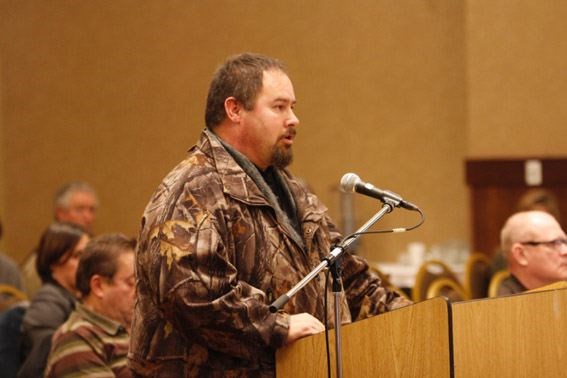Two Treaty 8 First Nations opposed to Site C say they'll be seeking a court injunction to halt the dam's continued construction.
The West Moberly and Prophet River First Nations said they will seek the injunction and launch a treaty infringement lawsuit after B.C. Premier John Horgan gave the green light for the project to continue to completion on Dec. 11.
"It sets a pretty strong tone from them," West Moberly Chief Roland Willson said in an interview after the decision. "We were hoping things would be different and it's just the same old, same old."
In the lead up to Horgan's decision, the two nations said finishing the now $10.7-billion dam would prompt a $1-billion lawsuit.
When completed, Site C will be able to produce 5,100 gigawatts of energy per year and have 1,100 megawatts of capacity. It will also flood some 100-plus kilometres of the Peace River valley and its tributaries, including farmland and First Nations cultural sites.
The two nations are talking with lawyers across B.C. and Canada as they prepare their claim, Willson said. Stopping the project now would ensure there's no irreparable damage done to the nations' rights under Treaty 8, Willson said.
"There's no reason to continue while we're deciding this court case," he said.
In its announcement, the government said BC Hydro and the transportation ministry will work with Treaty 8 nations to redesign the Highway 29 realignment at Bear Flat over Cache Creek to "reduce the effects on potential burial sites and sacred places."
"BC Hydro will invite proposals from Treaty 8 First Nations for this roadbuilding work," the government said.
Meanwhile, the government says it will advance reconciliation with local First Nations, and establish a Treaty 8 advisory committee that will give input to a Peace River Legacy Fund.
In a statement, Horgan acknowledged Site C is not supported by all Treaty 8 First Nations.
"I respect and honour the commitment of people who oppose Site C, and share their determination to move B.C. to a clean, renewable energy future and to embrace the principles of reconciliation with Indigenous communities," he said.
"We know this decision is not what some First Nations wanted. Their voices were heard and their perspectives were an important part of the deliberations on a very challenging decision."
Meanwhile, the Blueberry River First Nations says it was shocked by the decision.
The First Nation has a legal challenge before the courts to limit resource development in its traditional territory due to the cumulative impacts of industry. Site C would add to the "unprecedented" level of industrial activity in its territory, the nation says.
"The province has already broken its treaty promises to us, and that's why we are going to trial in March," Chief Marvin Yahey said in a statement.
"Premier Horgan could have done the right thing here and taken a step toward reconciliation, but he chose not to. Site C will be the single largest infringement of our rights under Treaty 8, and there is no justification for it."
Six First Nations, including the McLeod Lake Indian Band, signed deals of support for Site C with B.C. Hydro. McLeod Lake informed the B.C. Utilities Commission in a letter that it would seek "reparations" if the project was halted.



